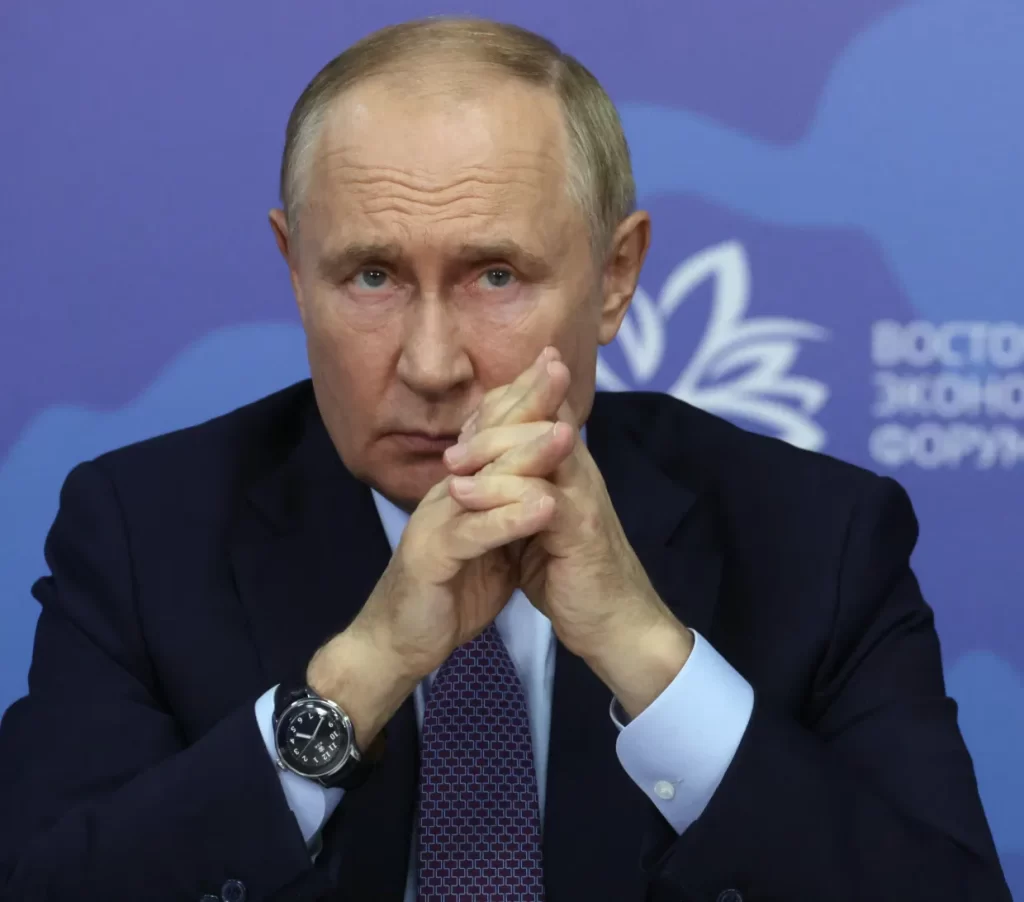German Chancellor Olaf Scholz and Russian President Vladimir Putin spoke Friday in their first direct communication since December 2022, marking Putin’s first publicly announced conversation with a major Western leader in nearly two years as uncertainty grows over President-elect Donald Trump’s future Ukraine policy.

During the hour-long call, initiated by Germany, Scholz urged Putin to withdraw Russian troops from Ukraine and pursue negotiations, while Putin insisted any peace deal must acknowledge Russia’s territorial gains and Ukraine’s rejection of NATO membership, according to officials from both countries.
“The chancellor urged Russia to be willing to negotiate with Ukraine with the aim of achieving a just and lasting peace and stressed Germany’s unwavering determination to support Ukraine in its fight against Russian aggression for as long as necessary,” German government spokesman Steffen Hebestreit said.
The timing of the conversation carries particular significance as Trump’s election victory raises questions about continued U.S. support for Ukraine. Trump has repeatedly questioned American aid levels to Ukraine and suggested he could quickly resolve the conflict, though Kyiv has rejected any territorial concessions to Moscow.
Ukrainian President Volodymyr Zelenskyy criticized the call as “a Pandora’s box” that would only reduce Russia’s isolation. “Now there may be other conversations, other calls. Just a lot of words. And this is exactly what Putin has wanted for a long time,” Zelenskyy said in his nightly address.

The Kremlin’s readout revealed persistent divisions, with Putin blaming the conflict on “NATO’s long-standing aggressive policy aimed at creating an anti-Russian stronghold on Ukrainian territory.” Putin reiterated conditions for peace talks first outlined in June, including Ukraine abandoning NATO aspirations and acknowledging Russia’s 2022 territorial annexations.
Scholz specifically condemned Russian air raids on Ukrainian civilian infrastructure and warned against the reported deployment of North Korean troops to Russia, which the U.S., South Korea, and Ukraine claim involves thousands of soldiers supporting Moscow’s war effort.
The conversation occurs as Scholz faces domestic political challenges, with a confidence vote scheduled next month and potential early elections in February. The German leader’s outreach to Putin also comes as the Ukraine conflict approaches its 1,000th day on Tuesday, with exiled Russian opposition leaders, including Alexei Navalny’s widow Yulia, planning an antiwar rally in Berlin on Sunday.
Kremlin spokesman Dmitry Peskov characterized the exchange as “detailed” and “frank” but emphasized there was “no talk about convergence of opinions.” Both sides agreed to maintain contact, though Putin had previously stated Western leaders would need to initiate any future communications.
The dialogue represents a significant diplomatic development as Western nations grapple with maintaining support for Ukraine amid shifting political landscapes and growing war fatigue.



